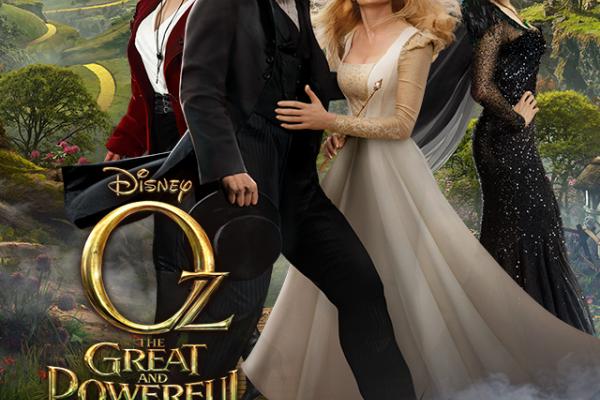Like the masses, we flocked this past weekend to the megaplex for the opening of another would-be blockbuster, pleased to discover that the much-heralded and sometimes-maligned Oz prequel is even more good and wonderful than it is great and powerful.
Acting, plot, intrigue, color, mystery, and special effects: all these measure-up under the fantastic mastery of director Sam Raimi. But beyond the eye-candy, sensitive audience members might be as mesmerized by the movie’s deeper myth and redemptive meaning as by its cinematic technique.
Of course, if we remember the original movie and its myth, the wizard has issues, for there’s a man behind the curtain who is much more about a confession of subdued humility than a profession of supernatural agility. The prequel takes us back before the main myth — to see the man inside the man behind the myth.
Somewhere in the magical middle of this movie, the not-yet-wizard Oscar Diggs (James Franco) makes his confession: “I'm not the wizard you were expecting, but I may be the wizard you need.” We can apply this maxim everywhere. This truth uncovers the human simplicity of the Oz legend and its relevance to all our longings in realms related to power and spirit.
The wizard we wanted fulfills a prophecy. The wizard wanted would be a warrior and a king. The wizard wanted would be a real superhuman shaman, but we get stuck with a Kansas carny showman. What really great leaders come out of Kansas?
In our early glimpse of the black-and-white Oscar Diggs, he’s truly a second-rate trickster, a lusty lecher, and fumbling fraud. By the time the Technicolor would-be-wizard admits his powerlessness, he slowly finds his power. At first, he learns his better nature out of a devious desperation to survive, but then before our eyes, he thrives. Through courage and love, he transforms into the fullness of his revelation and thus Oz’s (and our) liberation.
The wizard wanted relieves us of our responsibility and complicity in matters of theology and ideology. The wizard wanted removes our role in realizing our own freedom, to instead, conquer our enemies and quench our desires.
But we don’t get the wizard we wanted. We get the wizard we need.
The wizard we need becomes our leader by being first our friend, ally, and brother. The wizard we need finds power only through admitting powerlessness.
The wizard we need offers transcendence not through tricks but via a thick, messy, human love and uncommon courage. The wizard we need finds faith in himself to finish the mission not by an isolated hubris but by the more pure hope, solidarity, and trust that others offer him.
I recall learning about other times and places when the wizard we wanted didn’t show up to shun all inner contradiction or shut down external forces of unfreedom.
We wanted fullness. We needed emptiness.
We wanted to take what was ours. We needed to give it all to You instead.
We wanted lust. We needed love.
We wanted bling. We needed nothing.
We wanted a conquering king riding a chariot. We needed a peasant king riding a donkey.
Not every piece of intellectual pop-culture candy needs such a dissection to find the rich religious and political allegory buried in its center, but I could not resist this one. Sadly, I still see so many religious-types zealously promoting the wizard they wanted and killing the wizard we need.
After my recent journey to Oz, I am reminded that it’s the time of year on the religious calendar when we prepare to meet the one that we need, whose message about God’s power is ultimately revealed as total emptiness and abandon, true love as solidarity with human powerlessness. We still don’t want to admit that truth, which is why we need it still evermore.
Andrew William Smith is an English professor by day and DJ by night who works as the Faculty Head of the Tree House environmental living and learning village at Tennessee Tech. He’s an activist, poet, blogger, writer/editor at Interference.com, ruling elder in the PCUSA, and aspiring preacher. Check out his blog at http://unlikelysundayschool.blogspot.com/ or follow Andrew on Twitter @teacheronradio.
Got something to say about what you're reading? We value your feedback!
